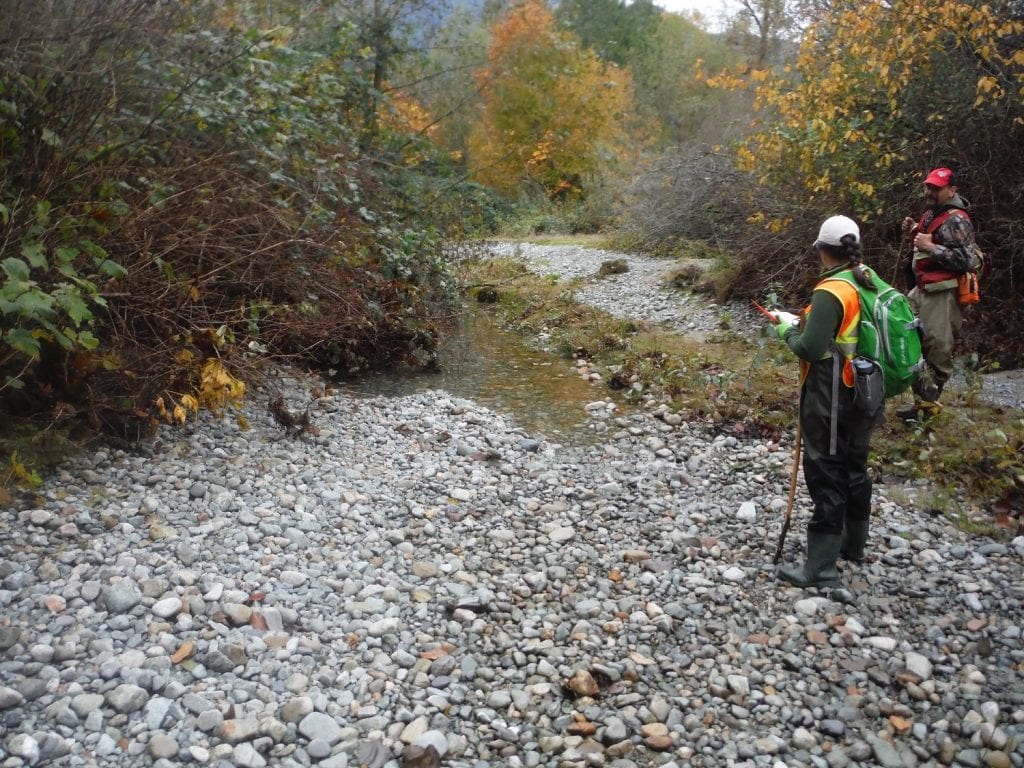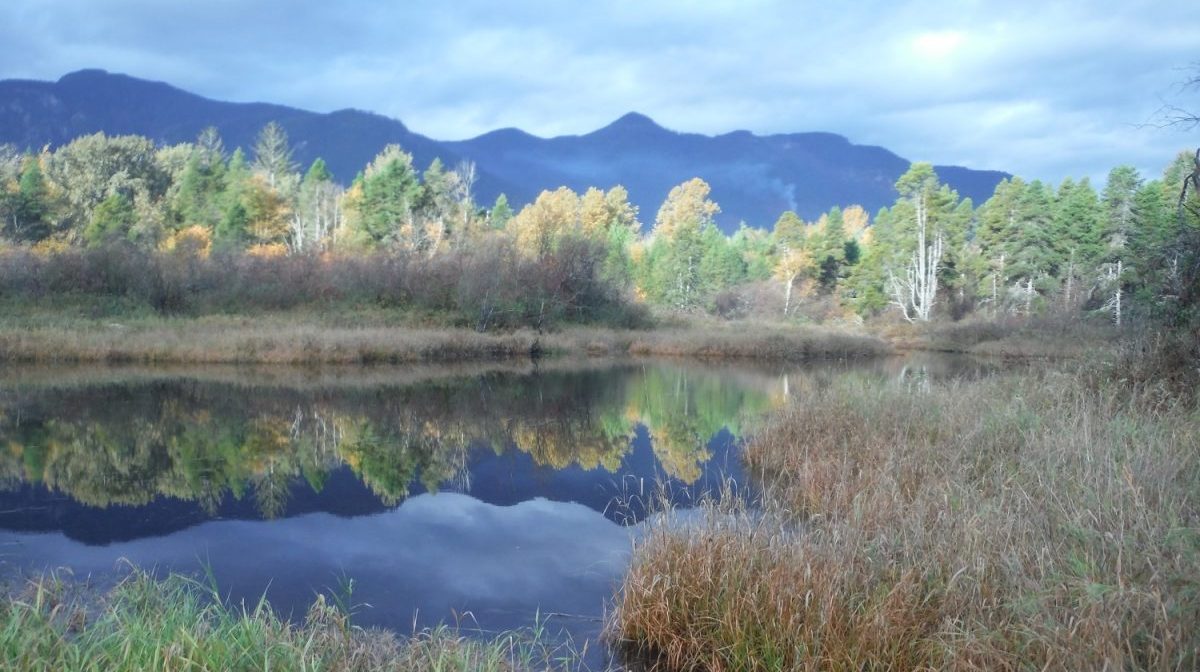A major tributary of the Fraser River system, British Columbia’s Harrison River plays host to all five species of salmon. However, many of the Harrison River tributaries no longer support their historic levels of salmon productivity—mainly due to barriers to fish passage, loss of habitat complexity, and invasive species.
The Sts’ailes Fisheries Group identified the need for a study of historic and current habitat conditions to find future fisheries restoration opportunities along the river. As a critical area for salmonids, the Harrison River requires a large-scale, holistic and proactive approach to future planning, management and restoration activities within the watershed.
Thanks to funding awarded by Mitacs-Accelerate, that proposed approach is soon to become reality. $15,000 in research funding will support BCIT/SFU Ecological Restoration master’s student and research intern Tyne Roberts in completing a Harrison River Watershed Salmon Habitat Restoration Assessment.
BCIT/SFU Ecological Restoration student and research intern Tyne Roberts and Burt Charlie (Sts’ailes Nation) collecting data at a salmon spawning channel in the Harrison River Watershed.The project will entail work with local First Nations and stakeholders to develop a comprehensive screening tool and interactive database on the state of fish habitat health in the watershed with the long-term focus of improving overall fish productivity and cultural values in the region. This screening tool will identify economically feasible and culturally valuable restoration efforts that maximize overall fisheries values over time.
“I am grateful to Mitacs for providing the grant, which allows me to be a part of this research,” says Tyne Roberts, BCIT/SFU Ecological Restoration student. “For me, this research is important on many levels; it highlights the need for a ‘whole picture’ view of salmon habitat restoration and incorporates a cost benefit analysis for each restoration activity. In this way, resources can be appropriately assigned to projects with the most ecological and economic benefit. Most significantly, it incorporates the cultural values which the Sts’ailes and Scowlitz First Nations place on the salmon fisheries.”
Project partners fostering this award include Dr. Jamie Slogan, Senior Biologist, Hemmera; and Dave Moore, General Manager, Sts’ailes – Scowlitz Fisheries.

